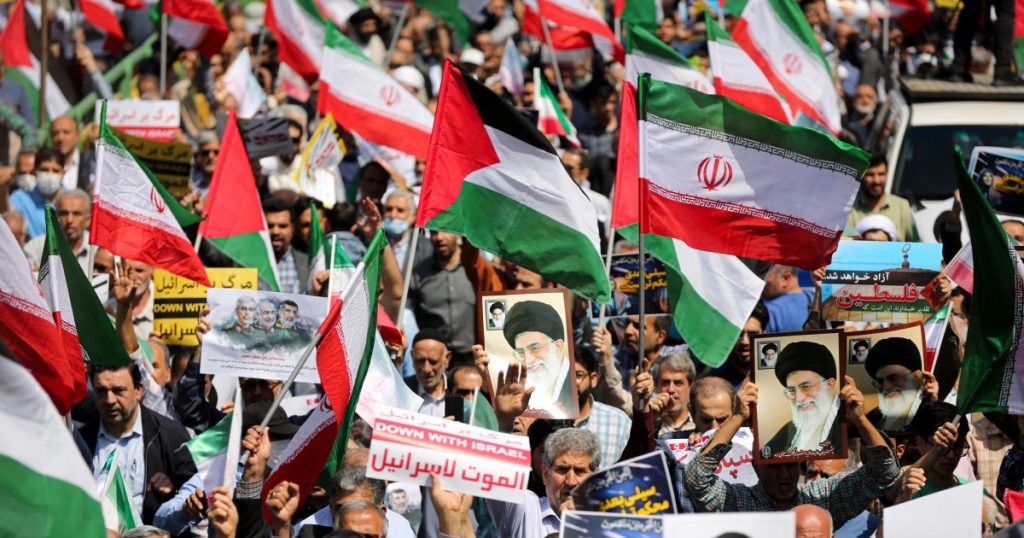Tensions between Israel and Iran have escalated recently, with Iran launching a missile and drone attack on Israel in response to an Israeli airstrike that killed several Iranian military officers. Israel responded with a targeted operation in Iran that was limited in scope. The United States has stated that they were not involved in the Israeli attack and have encouraged restraint to de-escalate the situation.
Iran’s attack on Israel was a retaliation for a deadly Israeli airstrike on the Iranian consulate in Damascus that killed several officers, including a senior commander in the Islamic Revolutionary Guard’s Quds Force. Despite firing more than 300 drones and missiles, the majority of them were shot down before reaching Israeli territory. This was the first direct military attack by Tehran on the Jewish state, leading to vows of retaliation from Israel.
The nuclear capabilities of both Iran and Israel are still unclear. The 2015 Iran nuclear deal limited Iran’s nuclear capabilities, but the Trump administration withdrew from the accord. It is widely believed that Israel has nuclear weapons technology, although it has not been confirmed. Iran has a new president, Ebrahim Raisi, while Ayatollah Ali Khamenei has been the supreme leader in Iran since 1989.
Iran has alliances with proxy groups such as Hezbollah, Hamas, and the Houthis, as well as broader support from countries like Syria. Israel has alliances with countries in the Middle East such as Saudi Arabia, Jordan, and the United Arab Emirates. Israel is considered a major non-NATO ally, with military ties to countries within NATO and beyond. The U.S., Britain, and Jordan have claimed to help defend Israel during the recent attacks.
As tensions between Israel and Iran continue to rise and the potential for further conflict in the Middle East looms, the situation remains volatile. Both countries are assessing the damage from recent attacks, with efforts from the United States and other parties to encourage restraint and de-escalation. The complex alliances and nuclear capabilities of Iran and Israel add to the uncertainty and potential for escalation in the region. Efforts to navigate this delicate situation and prevent further violence are crucial in maintaining stability in the Middle East.


